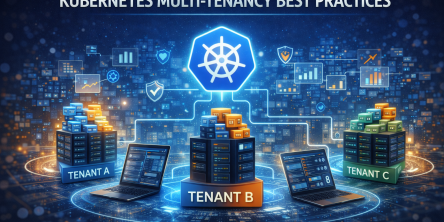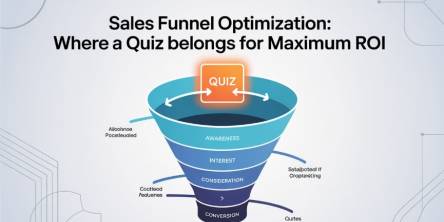Why One-Size-Fits-All Software Concept Fails in Highly Regulated Industries

At first glance, off-the-shelf software appears to be a dream come true. They are quick to set up, cheaper upfront, and marketed as “universal.” But the reality changes fast when you’re dealing with industries where compliance and data security can make or break your business.
In healthcare, software needs to align with HIPAA rules. In fintech, systems must be built for PCI-DSS compliance. In logistics, regulations around fleet safety and customs are non-negotiable. In such scenarios, a generic solution that might work for one sector might simply fail in another.
That’s where custom software for industries becomes critical. It makes sure not just functionality, but compliance, scalability, and security (hard to fit in a one-size-fits-all tool) are also considered.
Let's explore why “universal” software fails in healthcare, fintech, and logistics, and how businesses can protect themselves with custom solutions.
Why Can’t All Industries Use The Same Software?
Every sector works under its own regulatory ecosystem. What works in one space is frequently irrelevant or even dangerous in another. To understand it better, here are the key reasons that bring a stark difference:
- Compliance-first demands: Regulations like HIPAA, PCI-DSS, and fleet safety laws are designed for specific industries. A generic system can’t cover them all.
- Security risks: Off-the-shelf tools rarely provide the latest security frameworks needed in compliance-heavy sectors.
- Scalability issues: Generic tools can’t be modified as regulations evolve, forcing costly patches or even rebuilds.
This is why businesses serious about compliance and growth turn to custom software for industry, not one-size shortcuts. Then what are the major factors to focus on in industry-specific custom software development? Let’s understand with examples from healthcare, fintech, and logistics.
Key Considerations for Healthcare Industry Software
The healthcare industry is one of the most sensitive and deeply regulated domains. Patient data, clinical workflows, and medical devices all demand a compliance-first greet.
Current Risks
- Rising data privacy breaches.
- Lack of interoperability between Electronic Health Records (EHRs).
- Security risks with telehealth platforms.
Solutions
Building healthcare regulatory compliance software is the answer. This includes:
- HIPAA Compliant Software design with privacy data handling.
- FHIR-based APIs for seamless interoperability.
- End-to-end encryption and authentication protocols.
- Cloud infrastructure that scales securely with demand.
Benefits
- Builds long-term patient trust.
- Protects against lawsuits and penalties.
- Ensures smoother care coordination across clinics.
When I worked with healthcare software development clients, the key lesson has been clear: skipping compliance upfront costs far more later in the form of fines, downtime, and lost patient confidence.
Key Considerations for Fintech Industry Software
Fintech is another compliance-heavy sector where security and trust are everything. The risks here aren’t just technical; they’re financial and legal.
Current Risks
- Fraudulent transactions
- Insecure payment channels
- Complexities around Know Your Customer (KYC) and Anti-Money Laundering (AML).
Solutions
Using custom fintech compliance solutions guarantees safety and agility. This involves:
- Architecture designed for PCI-DSS compliance for software.
- AI-powered fraud detection and prevention.
- Tokenization and encryption for secure payments.
- Low-latency systems that handle real-time transaction monitoring.
Benefits
- Protects customer assets and financial data.
- Helps in faster, safer onboarding.
- Makes cross-border payments secure and compliant.
From my experience, fintech companies that rely on off-the-shelf solutions face downtime and fraud risks sooner than expected. That’s why custom software for industries like fintech isn’t just an option in today’s era. It’s a must-have.
Key Considerations for Logistics Industry Software
Logistics is the backbone of global trade, but it also comes with complex compliance needs. From customs clearance to fleet safety, the risks of using generic tools are massive.
Current Risks
- Delays due to non-compliance with trade laws.
- Inefficiencies from a lack of real-time shipment tracking.
- High costs due to poor route optimization.
Solutions
Custom software for industry logistics addresses these challenges directly:
- IoT-based GPS and real-time shipment tracking.
- Compliance-ready customs and trade reporting.
- AI-driven route optimization.
- Dashboards for full supply chain visibility.
Benefits
- Faster, more reliable deliveries.
- Reduced operational costs.
- Better compliance with global trade rules.
In logistics, even a small compliance failure can stop operations across borders. With custom solutions, businesses can scale globally without fearing sudden disruptions or failure.
Comparison Table for One-Size vs. Custom Solutions
Here’s a glance at how generic tools put you at risk while custom software brings an added advantage across industries:
| Industry |
One-Size-Fits-All Risk |
Custom Software Advantage |
| Healthcare | No HIPAA compliance, risk of data breaches | HIPAA Compliant Software ensures patient trust & legal safety |
| Fintech | Weak fraud detection, no PCI-DSS readiness | Fintech Compliance Solutions with PCI-DSS compliance for software enable secure payments |
| Logistics | Can’t adapt to customs or integrate IoT | Tailored logistics solutions offer compliance-ready reporting & real-time visibility |
The final takeaway from everything so far? Compliance isn’t optional anymore in this era, and only industry-specific software can meet these needs effectively.
Conclusion
With the help of examples from healthcare, fintech, and logistics, it's clear that compliance is the foundation of trust and a boost. The one-size-fits-all software idea fails because it overlooks the distinct regulatory frameworks and risks associated with each industry.
By investing in custom software for industries, businesses not only stay compliant but also bring scalability, security, and customer confidence. Whether it’s HIPAA-compliant software, Fintech Software development aiming for compliance solutions, or dynamic software for industry logistics, the path forward is clear: compliance-first design is the only way to future-proof your business.
If your business operates in a regulated sector, don’t gamble with generic tools. Instead, partner with expert teams who understand compliance and can build solutions that align with your industry’s exact needs.
Similar Articles
We live in the age of cloud computing. That's plain to see. However, what may escape many are the operational and financial challenges of managing multiple independent clusters.
Times have changed and how! Take modern technology and the fast-paced digital economy, it is driving. Given the market conditions, any company's infrastructure has become more than just a technical detail.
It has been for everyone to see that the modern digital economy is distinguished by high volume, real-time financial transactions.
Business success has become reliant on efficiency and agility of the underlying technology infrastructure. Clearly, companies now depend on cloud computing to provide seamless services while managing exponential data growth.
Hospitals operate in environments where availability and patient safety are paramount at all times. As medical supply chains expand and regulatory oversight becomes more demanding, manual tracking methods introduce delays and risk.
Every sales funnel has one core goal: turn attention into revenue as efficiently as possible. Yet many funnels leak value at critical stages—visitors bounce, leads go cold, and sales teams chase prospects who were never a good fit.
Decentralized Finance (DeFi) has transformed how users earn passive income through blockchain-based financial systems. Among its most popular use cases,
Staying organized can feel like a full-time job. Between meetings, deadlines, and personal commitments, it’s easy to get overwhelmed.
Choosing the right GIS mapping software depends on what you need to accomplish. Some platforms cater to developers who want to build custom applications from scratch.









